| ENRIQUE VILA-MATAS | LA VIDA DE LOS OTROS | ||||||||||
|
|||||||||||
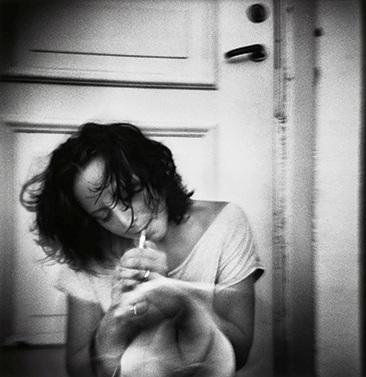 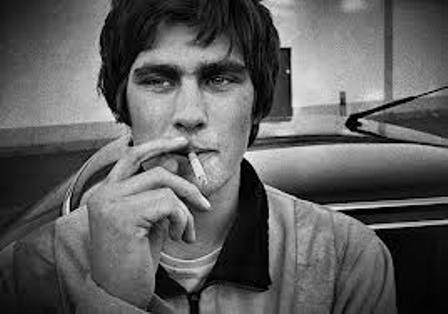 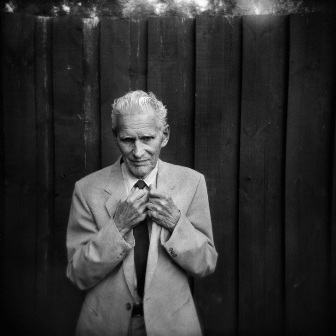 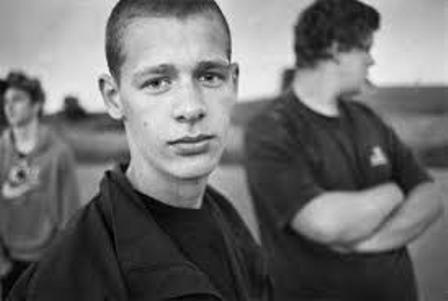 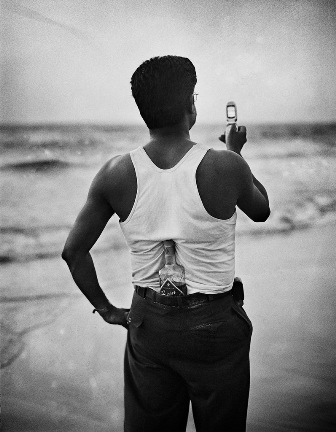  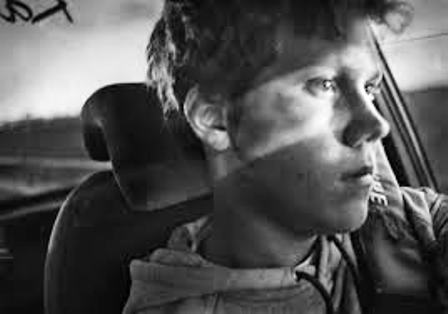 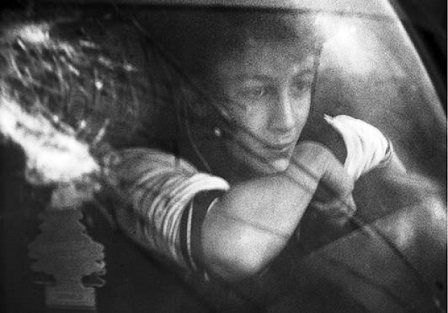 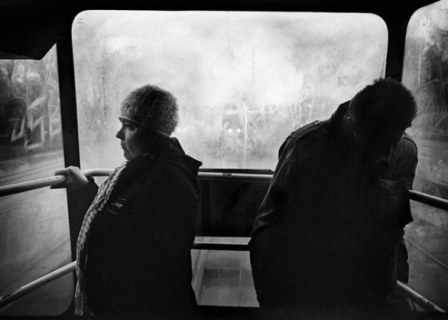 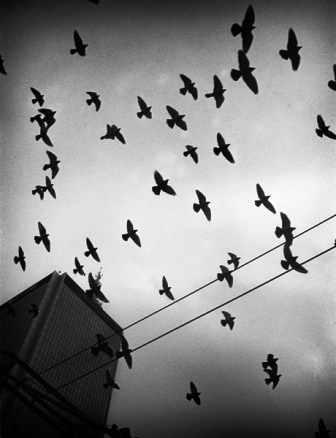 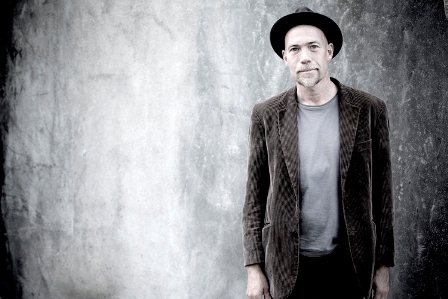  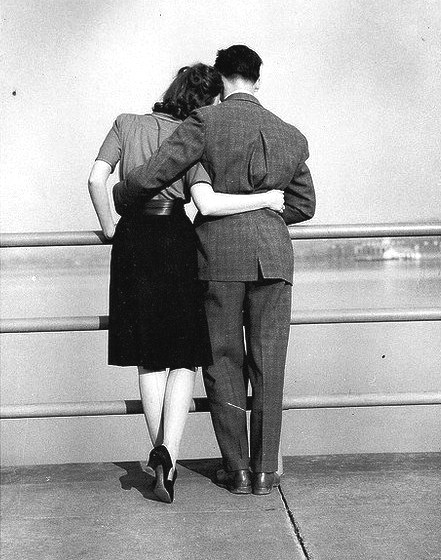 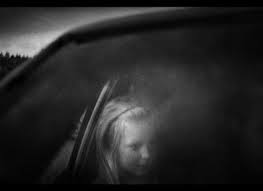 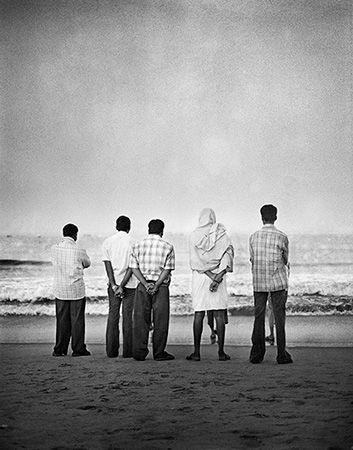 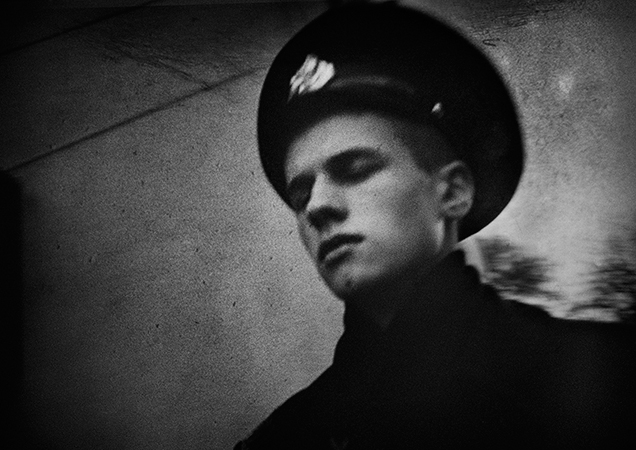  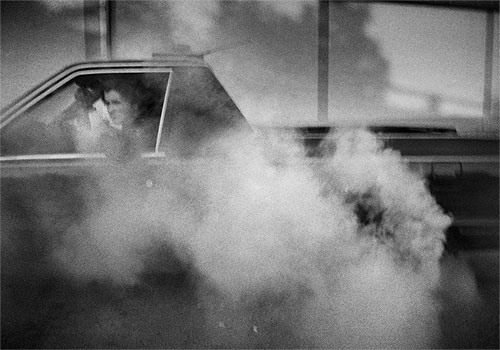 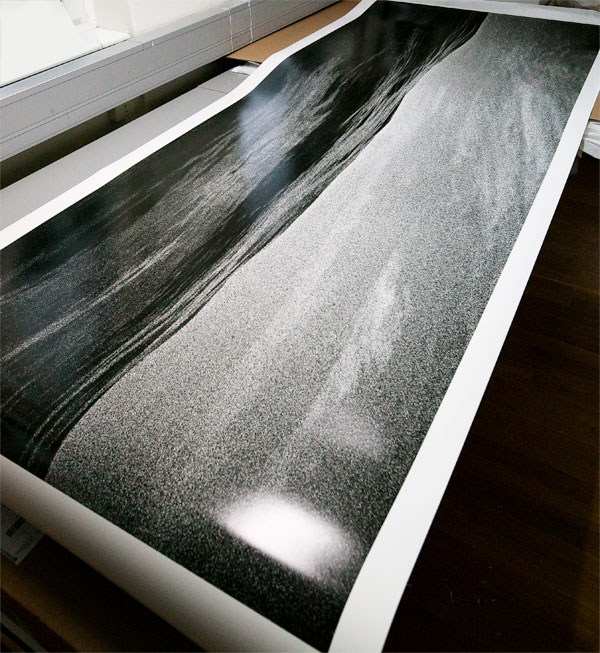 |
IRONY, STYLE, HAPPINESS AARON HILLYER Near the beginning of Enrique Vila-Matas's novel Bartleby and Co. its hunchback narrator responds to a colleague who asks what the literature of the future will be like: "I don't know. If I knew I would write it myself"! We soon learn that the narrator himself has not-so-coyly taken the gambit: I wonder if I can do this. I am convinced that only by tracking down the labyrinth of the No can the paths still open to the writing of the future appear. I wonder if I can evoke them. I shall write footnotes commenting on a text that is invisible, which does not mean that it does not exist, since this phantom text could very well end up held in suspension in the literature of the next millennium. When faced with what rises in the inexpressible space of subjective disappearance, "the labyrinth of the No;' the narrator decides to leave it be, suspended in a state of potentiality that is intelligible in outline only via the addendum of the footnote. In this way, Vila-Matas attests to the disappearing literature that Blanchot glimpsed in the statement inscribed in Bartleby and Co. which can be viewed as the kernel of inspiration for his recent works: "Literature is heading toward its essence, which is its disappearance." Indeed, another very similar statement by Blanchot appears as the epigraph of Montano's Malady, the novel that follows Bartleby and Co.: "What will we do to disappear?" An explicit textual connection between Vila-Matas's work and the final passage from The Unavowable Community, which we invoked as the point of departure for this study because so many writers of the No seem to respond to it, is established near the end of Bartleby and Co. where Vila-Matas cites Blanchot's passage at length, ending with his question for the writers of the future, "with what kinds of words” While Bartleby and Co. and Montano's Malady are exemplary instances of a literature of potentiality and disappearance, the novel that follows in Vila-Matas's oeuvre, Never Any End to Paris, responds most directly to the aspects we have highlighted of the specific constellation we are tracing. In this book the element of decreation we have just examined manifests via its main narrative trajectory, which is that of a scathing unveiling and annihilation of the narrator's personal identity, an unveiling of embarrassing and poignant memories that allow him to come to grips with a past that is absolutely lost, in order to eliminate a Lltraces of nostalgia, and the subject position it maintains, in his life. The roots of this perspective are found in Borges's discussion of Orbis Tertius, an axiom of the philosophical schools whereby "the future has no reality other than as a function of our present fears and hopes, and the past has no reality other than merely as that of memory," These memories that make up the past, the narrator learns, are very precarious because they are never reaL Nostalgia, as a desire to maintain the actual past, is nullified because the past is never actually available to us, and even the images that claim it only end up showing the abyss that separates it from us. Vila-Matas's narrator, a version of the author himself, learns this lesson from Borges: I heard Borges say he remembered one evening his father had told him something very sad about memory, he'd said: "I thought I could remember my childhood when I first arrived in Buenos Aires, but now I know I can't, because I think if I remember something, for example, if today I remember something from this morning, I get an image of what I saw this morning. But if tonight I remember that thing from this morning, then what I remember is not the first image I had of that thing, but the first remembered image. And so each time I remember something, I am not really remembering it, but rather am remembering the last time I remembered it, I am remembering the last memory. So in reality I have absolutely no memories or images of my childhood, of my youth." Despite this painful knowledge, however, the narrator embarks on an extended foray into his memory, not trying to recreate the past the way it actually was, but creatively using the images from the past in order to draw out elements of his subjectivity that were aligned with a tepid egoism, in order to empty out or decreate himself. "Irony" is the name he assigns to this process. As he writes, "I do think irony is a powerful device for de-activating reality:" Each of the novel's 113 brief chapters, which are configured together as a three-day lecture, ironically recalls an aspect of the narrator's formative years spent in Paris trying to evoke the lost city of Hemingway's A Moveable Feast while learning to be a writer. During this time, he says, he had no sense of irony, but the seeds of such a perspective were gradually incubated then in experiences that allow for a degree of creative separation from reality. He highlights two such experiences. The first occurs after he ingests an especially potent blotter of LSD-25. In Chapter 42 he ironically remembers this experience and shows how it contributed to the ironic, anti realist style of his mature writing. Of all the contributions LSD made to his literary project, the narrator relates, three stand out above the rest: 1) Grand questions about whether the visual reality accepted by common sense has anything to do with true reality. 2) The discovery of my taste for simulation and transvestism. 3) The discovery of the fragility of my incipient writing, mainly attributable to my scant experience as a reader, which led me to decide, given that I could barely subsist on literary material (I had little reading experience), that I would draw sustenance from the visual, cinematographic lessons the drug had provided me." The first contribution is a precursor to irony, because in order to deactivate established reality its necessity must be questioned. The second stems from his desire to escape his class-based manner of dress while on acid: "many hours before I returned to normality and to reality, I realized I felt very bad about my body and also my bourgeois, corseted way of dressing and began to change my clothes frenetically, searching the mirror for a different presence from the usual one." The result of this frenetic search is an experiment in cross-dressing: "I ended up dressed as Hemingway in his female version, that is, I dressed up as a little boy with a girl's blonde ringlets, just as Hemingway's mother dressed him when he was little, in pink gingham with a flowery hat. While Vila-Matas as narrator suggests that Hemingway's "entire virile-literary career" can be read as an "extreme reaction to the image of the effeminate mommy's boy;' his own oevre springs from embracing such an image of himself and chalking it up to irony, to the continual processing of disappearing and becoming something other than what he is. This gesture reveals the third contribution made by LSD to his burgeoning project, that of delivering the knowledge that ifhe is to write he will not be able to do so under the auspices of social esteem, with the backing, for instance, of an erudite childhood spent in the family library: "Certainly an author who has come to the experience of writing after having imbibed the contents of the family library seems much more respectable than one who has begun to construct his literary edifice after an acid trip. The quality of my early poetics seems scant if, as I'm saying, it was basically sustained by a drug that simply widened my visual field of perception.?" Again, though, the narrator embraces the abjection of his experience, affirming it as a treasure beyond compare in the effort to deactivate reality, decreate himself, and bring this potential mode to writing: And yet, I'm not sure now that I should reproach myself at all, rather quite the reverse. Because while it's true later on I read quite a lot and my literary knowledge was strengthened, it's also true that LSD, by opening up my visual field, was not at the time by any means an insignificant source of inspiration. Besides, some of those perceptions of a distinct reality have lasted firmly and still today carry a highly remarkable energy, and are the reason I can laugh at realist writers, for example, who duplicate reality and so impoverish it. The second experience that delivers him of a "certain distance from what people called reality" concerns an element of a dream that he is able to carryover into waking life, which transforms that life absolutely." Full of anxiety over his first novel, The Lettered Assassin, he is somehow bored by conversation with Marguerite Duras in her loft and begins to daydream. As he drifts off, a vivid image pops into his mind of his book, already written and published by Duras but credited to him, sitting in an old chest in that very loft, stained with damp: "This pretentious daydream with its mixture of laziness, terror and a certain idea of success, couldn't have been more wretched-it certainly is wretched to want someone to write your book for you-but curiously, despite its detestable character, the dream managed to push me towards serious reflection?" The image passes over from the dream to powerfully affect his literary the loft: Suddenly, thanks to my literal belief in those stains and in that dream and, therefore, in my imagination, I began to reflect ... I thought I perceived the full power of the written word, and this led me, by way of a rather involved shortcut, to sense its importance as a means of acquiring a certain distance from what people called reality, which is-as it has always been for such a great number of young people-actually a very disappointing thing. I thought I suddenly perceived, coming down those stairs, the need I had for words and also the need for these to be useful to me so I could distance myself from the real world. On those stairs, I definitely began to turn into a real writer," For him, this special resistance of literature is eventually aligned with the mechanism of irony to forge a powerful mode of subsisting in the interferences between the established world and the coming world: But as I still had no access to irony, words could do little for me that day, although I didn't know it then, precisely because of my lack of a sense of irony ... Of course maturity isn't so great either. When you're mature, true, you understand irony. But you're not young anymore and the only possibility of remaining so lies in resisting, with the passage of time, not relinquishing that damp chest I imagined so vividly in Neauphle-le-Chateau, You can resist, and not be like those who-as the intensity of their youthful imagination gradually diminishes-accommodate to reality and worry for the rest of their lives. You can only try and be one of the stubbornest, keeping faith in imagination for longer than other people. To mature with obstinacy and resistance: to mature, for example, by giving a three-day lecture on the irony of not having been aware of irony as a young man. __________________________________________________This power of the literary word, the imaginative summons of another world that both beckons a writer and unfolds from the words she writes, finds exemplary expression in a formulation for Duras, who serves as the narrator's mentor and surrogate mother during his time in Paris. In a late interview she says: "I can say what I like, but I shall neVer know why people write and how it is people don't write. In life, there comes a time, and I think it is total, that we cannot escape, where we doubt everything: that doubt is writing."! And at the heart of the resistance of irony, of this work of contestation and doubt, Vila-Matas identifies a concept of subjective oscillation: "I don't like ferocious irony but rather the kind that vacillates between disappointment and hope."? Disappointment and hope correspond to the poles of the writerly existence of Duras' life, hope of the sort we have already examined, on one end, which Kafka said is "not for us" because it could only be truly destined for nobody, for the subject that is surprised and displaced by unindividuated being, and, on the other end, the disappointment or melancholy of being excluded from the collective in order to assess and shape, perhaps, the language that has sprung from it. Duras attests to this latter pole in a poignant statement: "We writers lead a very poor life: I'm talking about people who write for real. I don't know anyone with less of a personal life than I have?" The hopeful side, the exuberant element of Duras, manifests in her immersion in a particular social scene, the collective existence of a group of students. Vila-Matas's narrator describes Duras with this group, known as the "Argentinean group" of Paris, "a bunch of young people who often hung around Marguerite Duras and who I remember always seemed very comfortable in the company of her intelligent madness, very comfortable because, as well as being fun and conveying a feeling of liberty, Marguerite took a lot of interest in all of them"?' In the words of the writer, cartoonist, actor, and painter Copi, who was part of this group: "Marguerite is alone, but she feeds off others'?' This aspect of Duras, her elusive back and forth between the two poles, constitutes the singular potentiality that defined her existence. The narrator begins to approach her mystery and art via Blanchot's essay on Duras' film India Song: "Maurice Blanchot wondered what India Song was. Could it be said to be a film or perhaps a book or not one thing or the other? After reading Blanchot's essay, I had the impression I knew less about Marguerite than I knew before starting to read the essay':" The poet Ullán confirms that this "knowing less" that characterizes Blanchot's essay on Duras was a crucial aspect of her personal affect as well as the social milieu she maintained. Of Duras' house, Ullán says, "less was known there all the time.?" Though Vila-Matas does not mention it, and though it is not explicitly about Duras, a passage from Agamben illuminates the special "lovability" carried by her writerly mode of being, her oscillation, which constantly moves toward knowing less, toward unexpression, as the basis of writing, even amidst a torrent of words. In the essay "Genius" Agamben writes: To some extent we all come to terms with Genius, with what resides in us but does not belong to us. Each person's character is engendered by the way he attempts to turn away from Genius, to flee from him. Genius, to the extent that he has been avoided and left unexpressed, inscribes a grimace on Ego's face. An author's stylelike the grace displayed by any creature-depends less on his genius than on the part of him that is deprived of genius, his character. That is why when we love someone we actually love neither his genius nor his character (and even less his ego) but his special manner of evading both of these poles, his rapid back and forth between genius and character," As Agamben indicates, an author's style can be located in her attempt to detach from the jolting collective dawning of thought that has captivated her, enough at least to tell about it in words that may coax readers. In the terms of Melville's schema, Ahab has no style, he is unable to flee his genius, while Ishmael's mode of being is precisely that of style, which can be found in his ability to narrate, to establish a certain distance from his given world, to educate his readers with voluminous excurses on the anatomy of the sperm whale as well as hold them rapt with the image of a kaleidoscopic doubloon or a coffin bearing the secret of the world etched in wood. These schematics of the potentiality or oscillation of style are what Vila-Matas's narrator gradually comes to be aware of, primarily through the urging of Duras herself: "You've come here to Paris ready to forge your own style, isn't that right?" she asks him one day, "in a treacherous, sombre tone.?" But it is through the literary principles of Stendahl that the narrator comes to most fully and clearly grasp the sense of style that is at issue throughout this text. The narrator comes to understand that the failure of his first novel is due to its total lack of style. He explains that he set out to "kill" his readers in the subjective sense, with the best of intentions in the sense of death and disappearance that we have traced throughout this study, but ended up killing them in a textual sense. His early words seem cold to him now, from the perspective of time, unable to bring his readers to life, which is exactly what a writer has to do ifhe wants to kill them subjectively. He first learns of Stendahl via Andre Gides description of the pole of Stendahl's stylistic oscillation that corresponds to his genius: II· In those days I had no idea that, as Gide said, the great secret of works with stylethe great secret of Stendahl, for example-consists of writing on the spot. Gide says of Stendahl that his style, what we might call the malice of his style, consists in his stirring thought being so alive, so freshly colored, like a newly hatched butterfly (the collector is surprised to see it emerging from the chrysalis). From this comes Stendahls vivid, spontaneous, unconventional touch, sudden and naked, that captivates us again and again." The "malice" of Stendhal’s style, its aspect of freshness and strangeness, is one pole of its oscillation. Vila-Matas's narrator incorporates this into his own approach, which he formulates in terms of "live thoughts": "I think that in my first foray into literature, in The Lettered Assassin, I dissociated form from content too much, and emotion from the expression of emotion and thought ... Emotion and thought should always be inseparable, the reader should witness live thoughts stirred by emotions in the creation of a text'?" But this is only one pole of style, and, if the live thoughts are to be present in the finished text, no matter how strange they might be, they must attain the light of clarity, for the readers. Stendhal maneuvers away from his genius, from its raw live thoughts, to ones that, while still retaining the emotion initially stirred by the appearance of the words, are slightly more refined, without resting either on the opposite pole, that of character, the element that is totally removed from genius, because bringing readers to life requires transmissibility as well as verbal energy. As Vila-Matas writes of his early inability to understand this, "I never fully comprehended that it was unnecessary to kill readers textually. The thing is that style consists precisely in bringing them to life, instead of killing them off, in addressing new readers with the greatest clarity and simplicity possible, no matter how strange what you want to say might be?" (98). Again, he comes to realize this principle via Stendhal: It took me a long time to understand-if I really do understand-what Stendhal realized as he was writing The Charterhouse of Parma. He decided that to achieve the correct tone, no matter how strange what he wanted to say might be, so his readers would understand exactly what he was trying to say, he needed, every now and then, to read a few pages of the Civil Code. "If! am not clear;' he wrote, "my whole world is annihilated." The new world that unfolds from the experience of Genius risks being lost without an adequate transmitter, without the limpid style of one who, for instance, will briefly approach the ossified words of the law, the Civil Code, if this is what will distance him from Genius enough to extend its awakenings to others. The space from which this sort of writing emanates is the space of oscillation or, in Carson's terms, the space of contradiction. For Vila-Matas's narrator, Duras is a pure manifestation of this contradiction. In one dazzling sentence, Vila-Matas evokes his memory of her in this sense: I will always remember her as a violently free and audacious woman, who wholeheartedly and openly embodied-with her intelligent use of verbal license, for example, which in her case consisted of sitting in an armchair in her house and, with real ferocity, speaking her mind-I remember she embodied all the monstrous contradictions to be found in human beings, all those doubts, that fragility and helplessness, fierce individuality, and a search for shared grief, in short, all the great anguish we're capable of when faced with the reality of the world, that desolation the least exemplary writers have in them, the least academic and edifying ones, those who aren't concerned with projecting a right and proper image of themselves, the only ones from whom we learn nothing, but also those who have the rare courage to literally expose themselves in their writing-where they speak their minds-and whom I admire deeply because only they lay it on the line, only they seem to me to be true writers." In an essay on Foucault, Agamben writes of these writers who risk the absolute exposure of coinciding with the work, of disappearing within it: "the author marks the point at which a life is offered up and played out in the work. Offered up and played out, not expressed or fulfilled. For this reason, the author can only remain unsatisfied and unsaid in the work?" This insight is the core of the theory of writing developed by Agamben in this essay, titled "The Author as Gesture:' It leads him to posit the text as the place where the reader and writer engage in an "inexhaustible game" of disappearance, one that recalls the dance of jealousy glimpsed by Sappho and the "FarNear" invoked by Marguerite Porete. This place, the taking-place of la~guage, is, according to Agamben, therefore neither in the text nor in the author (nor in the reader): itis in the gesture through which the author and reader put themselves into play in the text and, at the same time, are infinitely withdrawn from it. The author is only the witness or guarantor of his own absence in the work in which he is put into play, and the reader can only provide this testimony once again, making himself in turn the guarantor of the inexhaustible game in which he plays at missing himself." For Agamben, this conception of the author and reader is a paradigm for subjectivity itself, which he develops with reference to Foucault's essay "Lives of Infamous Men;' which was originally conceived as the preface to an anthology of archival documents, prison records, and lettres de cachet, in which, at the very moment when they are struck with infamy, "the encounter with power pulls from darkness and silences these human existences that would otherwise not have left any traces.?" In their confrontation with power, in their defiant gestures captured in prison photographs, these infamous men, like Bartleby, exhibit "something like the luminous traces of another life arid another history;' a form-of-life that "increases its resistance at the point where its apparatuses capture it and put it into play?": The subject-like the author, like the life of the infamous man-is not something that can be directly attained as a substantial reality present in some place; on the contrary, it is what results from the encounter and from the hand-to-hand confrontation with the apparatuses in which it has been put-and has put itselfinto play. For writing (any writing, not only the writing of the chancellors of the archive of infamy) is an apparatus too, and the history of human beings is perhaps nothing other than the hand-to-hand confrontation with the apparatuses they have produced-above all with language." Vila-Matas begins to conclude Never Any End to Paris by invoking precisely this "hand-to-hand confrontation" with writing, which Marguerite Duras exemplified, and which she sadly takes leave of in her final departure: "Many years later, Marguerite Duras also withdrew into herself. This happened 20 years after I left my garret. My biography of those years shouldn't end the moment I left the city but rather 20 years later, when Marguerite withdrew into herself, she drifted away from the world and left off writing forever, left off her hand-to-hand combat with writing ..." . . . . . . . . . . . . . . . . . . . . . . . . . . . . . . . . . . . . . . . . . . . . . . . . . . . . . . . . . . . . . . . . . . . . . . . . . . . . . . . . .Vila-Matas's narrator shakes off the sorrow of Marguerite Duras' death to keep writing, and in this way adheres to a principle of happiness articulated earlier in the book, in a discussion of the transformation wrought by his foray into pataphysics, of all things. When a friend mentions that he used to be a pataphysician, the narrator wonders how it compares to his own status as a self-identified situationist, even though he knows little about either approach given his lack of prior reading. His curiosity piqued, he embarks on a new readerly trajectory to understand pataphysics, "shoving Hemingway brusquely aside" in favor of a constellation he perceives to be the lineage of pataphysics, including Jarry, Artaud, Roussel, Rimbaud, de Sade, Lautréamont, Hölderlin, Nietzsche, and Mallarme, This reading somehow sows the seeds of happiness and begins to transform the narrator's faux tragic persona: "Now, for the first time I realized that perhaps elegance could be something different from what I had always thought, perhaps elegance was living in the happiness of the present, which is a way of feeling immortal':" The narrator locates four further touchstones of this burgeoning happiness that stems from his pataphysical reading. These references span the entire globe, from a Chinese proverb, to a passage from Montaigne, and a line from Foucault cited by Deleuze and Guattari, to the Argentinean Macedonio Fernandez and the Spanish writer Fernando Savater. The first three appear in the same paragraph in Chapter 34: As the Chinese proverb says, you cannot prevent the dark birds of sorrow from passing over your head, but you can keep them from nesting in your hair. "I do nothing without happiness;' Montaigne said. At the beginning of Anti-Oedipus we find this great sentence by Foucault: "Do not believe that because you are a revolutionary you must feel sad?" The final two references appear one page later, when he mentions how long it took for him to become completely happy: For a long time I maintained my belief-which wasn't completely destroyed until August of this year-in the intrinsic elegance of despair. Until I discovered how inelegant it is to walk, sad, in despair, dead, through the streets of your neighborhood in Paris. I realized it this August. And ever since I've been finding elegance in happiness. "I have embarked on the study of metaphysics several times, but happiness always interrupted;' said Macedonio Fernandez. Now I think going through the world without experiencing the joy of living, rather than elegant, is just so humdrum. Fernando Savater said that the Castilian saying to take things philosophically does not mean to be resigned to things, or to take things seriously, but rather to take them happily." Macedonio's formulation of happiness as that which exists beyond metaphysics, that interrupts it, is a perfect definition of pataphysics, and, indeed, his novel, TheMuseum of Eterna's Novel, a collection of prologues for a novel that never starts, is a wonderful consideration of the question at the heart of this study, that of literature's disappearance. One of those prologues defines his novel as "a home for non-existence?" This phrase could also be used to describe Never Any End to Paris, or any novel by Vila-Matas. His works enact their own decreation; they kill readers subjectively while bringing them to life textually. * Capítulo del libro de Aaron Hillyer The Disappearance of Literature: Blanchot, Agamben, and the Writers of the No. Bloomsbury ed. |
||||||||||
|
|||||||||||
| www.enriquevilamatas.com | |||||||||||